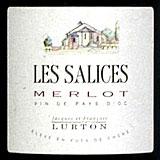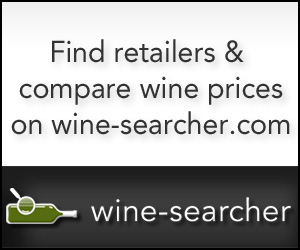|
"French Cepage" concept shelved
A marketing concept that would have created a new labeling category for French wines made from grapes grown in more than one wine-producing region has been shelved for now, the British wine journal Decanter reported this week. The initiative would have created a new category, "Cepage de France" ("French blend of grapes") that would have allowed producers to bypass the traditional French "appellation" system under which quality wines must be labeled with their region of origin - Bordeaux, Burgundy, Chablis and the like - and must be made using strictly regulated grape varieties and vinification techniques specific to the region. The concept was put forward by "Cap 2010," which Decanter described as "an industry group of seven heavyweight industry insiders set up to advise on ways to improve French wines and halt the loss of market share to New World producers." "Cepage de France" wines would be required to contain only 85 percent of the grape variety shown on the label (in contrast to a 100 percent requirement in many French appellations), and would not carry a regional designation other than "France." Despite the powerful industry forces aligned behind it, however, Decanter reported that Allan Sichel, managing director of Maison Sichel, one of the seven Cap 2010 participants, declared the plan a "no go area." Largely because of opposition from producers of Vin de Pays ("Wine of the country," a secondary tier of French wines below the controlled appellation system), Sichel said, "It's not practical to see it being launched in the short term. It's not given up, but it's on hold." Many regional producers opposed the concept, Decanter reported, because they believe that Cepage de France wines would be cheaper to produce and would "destabilize" the market. "It was obvious that consumers would see no difference between Cepage de France and Vins de Pays," Sichel told Decanter.com The plan would also have required regulatory change within the European Union to resolve conflicts with EU requirements that quality wines be produced from grapes grown in specific "delimited" geographical regions. Is this merely a technical issue, or does it matter to wine consumers? It seems to me that any significant change in wine marketing and regulation with potential to create new markets or impact old ones is worth watching. Personally, I view the proposal with mixed emotions. The side of me that enjoys new experiences and hails innovation would like to see what sort of new wines would emerge if Cepage de France wins approval. But my cynical side fears the "rush to the bottom" that might occur if mass-market producers took advantage of the concept to make bland, homogenized-style wines that gradually supplanted wines with more distinct regional character.
Discuss this topic in our online forum:
WEB LINK: Now, here's my report on an affordable, modern-style Vin de Pays d'Oc from Languedoc, a tasty if "international" Merlot that doesn't really make a strong argument for distinct regional character in Vin de Pays.  J et F Lurton 2000 "Les Salices" Merlot Vin de Pays d'Oc ($8.99)
J et F Lurton 2000 "Les Salices" Merlot Vin de Pays d'Oc ($8.99)
This clear, dark-garnet wine shows reddish-purple glints. Spicy candied-fruit-compote aromas, cherries and berries, lead into a fruit-forward flavor, ripe if a bit simple, black fruit and spice and a wisp of gently astringent tannins. Very much in the "international" style, it's a crowd-pleasing Merlot, well suited for by-the-glass restaurant service; but despite its "wine of the country" Languedoc appellation, its accent is distinctly mid-Atlantic. U.S. importer: Ex Cellars Wine Agencies Inc., Solvang, Calif. (Oct. 21, 2003) FOOD MATCH: A food-friendly wine, it would serve well with red meat or poultry, and made a fine cross-cultural match with a not-too-spicy dish of Szechwan shredded beef with carrots and celery. VALUE: Good value. WHEN TO DRINK: Won't fade in the next year or two, but not really meant for aging.
WEB LINK: You'll want a high-speed connection to visit Lurton's Flash Website at Administrivia To subscribe or unsubscribe from The 30 Second Wine Advisor, change your E-mail address, or for any other administrative matters, please use the individualized hotlink found at the end of your E-mail edition. If this is not practical, contact me by E-mail at wine@wineloverspage.com, including the exact E-mail address that you used when you subscribed, so I can find your record. We do not use our E-mail list for any other purpose and will never give or sell your name or E-mail address to anyone. I welcome feedback, suggestions, and ideas for future columns. To contact me, please send E-mail to wine@wineloverspage.com All the wine-tasting reports posted here are consumer-oriented. In order to maintain objectivity and avoid conflicts of interest, I purchase all the wines I rate at my own expense in retail stores and accept no samples, gifts or other gratuities from the wine industry.
Wednesday, Oct. 22, 2003 |




